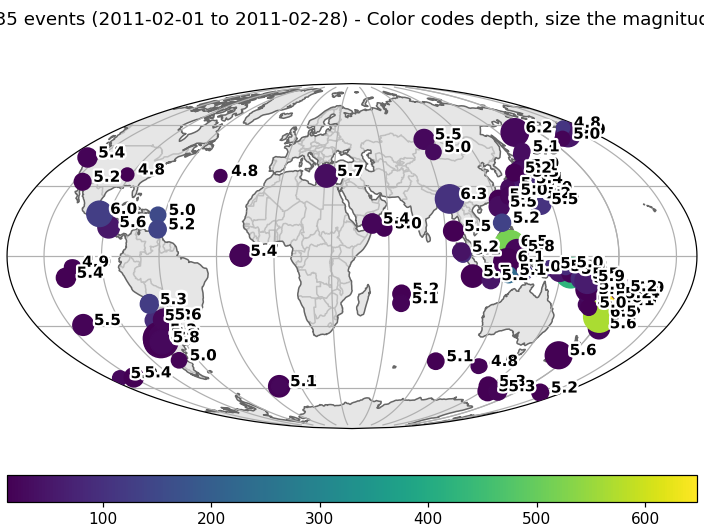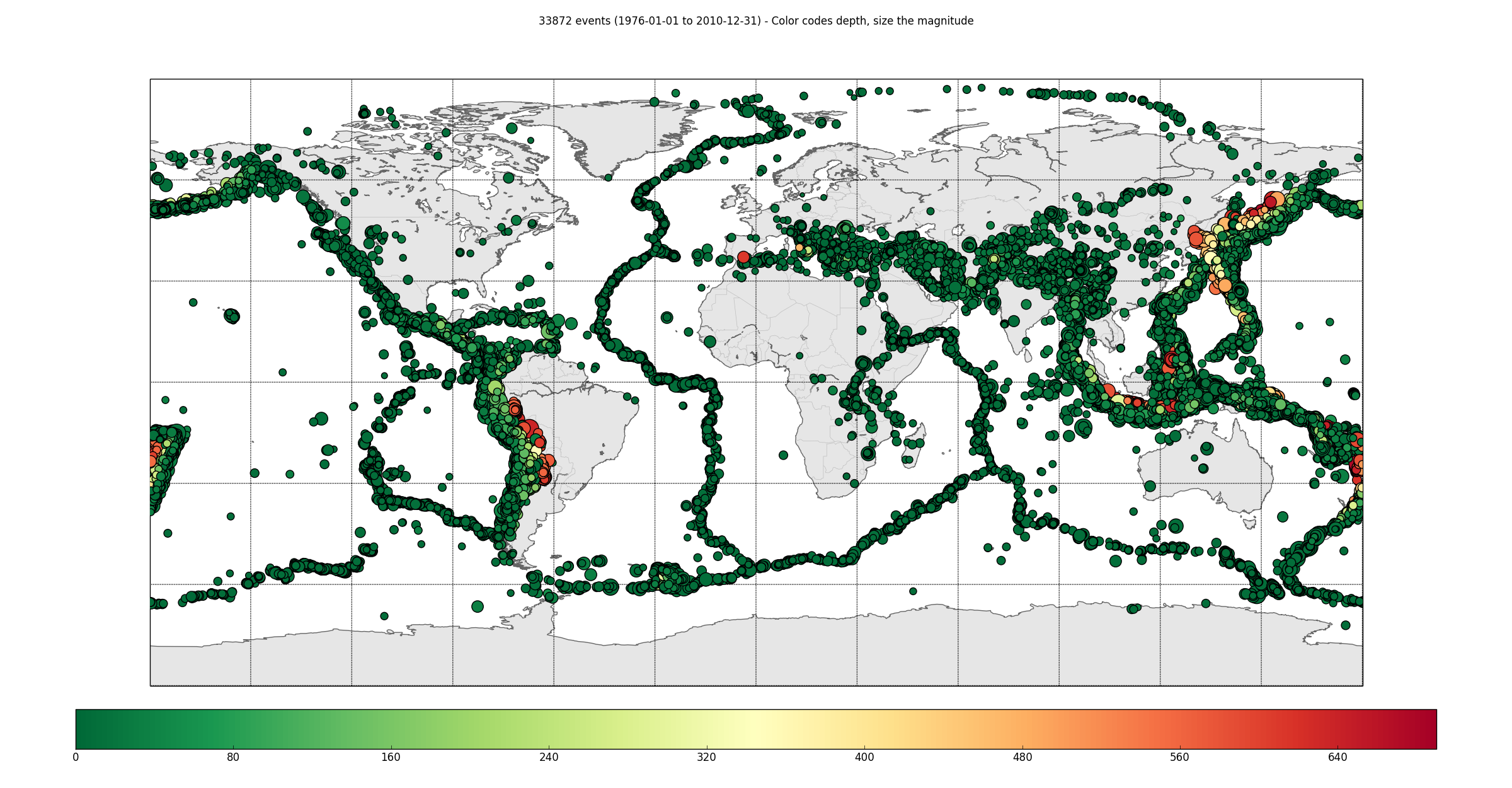obspy.io.ndk - NDK file support for ObsPy
This module provides read support for the NDK files distributed by the Global Centroid-Moment-Tensor (CMT) catalog.
- copyright:
The ObsPy Development Team (devs@obspy.org)
- license:
GNU Lesser General Public License, Version 3 (https://www.gnu.org/copyleft/lesser.html)
The NDK format is used by the Global Centroid-Moment-Tensor (CMT) Project and also in couple of other places to describe centroid moment tensor solutions for earthquakes. Write support is not provided due to limited potential use. Furthermore NDK files require some very specific information about earthquakes which is not available all the timer
Acquiring NDK Files
Note
You always can either download the file and then pass the file location to ObsPy or you can directly pass the URL to ObsPy which will download it for you as demonstrated below.
The GCMT project offers two types of solutions: Quick (calculated within hours of an event) and Standard (calculated later and with greater accuracy). Quick solutions are available individually or as a single file collecting the most recent solutions. Standard solution are available via the CMT Catalog Files website.
Basic Usage
Note
During reading all values will be converted from dyne-cm to N m.
Furthermore the depth values will be converted to m and the source time
function duration will be doubled to adhere to the QuakeML standard. The
region name in the NDK file will be replaced with its full Flinn-Engdahl
region name using ObsPy’s built-in region parser.
The read_events() method is used to read NDK files to
Catalog objects.
>>> import obspy
>>> cat = obspy.read_events("/path/to/C200604092050A.ndk")
>>> print(cat)
1 Event(s) in Catalog:
2006-04-09T20:50:51.300000Z | -20.460, -70.730 | 5.73 Mwc
One of the main purposes of this module is the conversion to QuakeML which can easily be achieved with ObsPy.
>>> cat.write("C200604092050A.xml", format="quakeml")
Instead of passing a filename it is also possible to specify a URL (in this case to the solutions from February 2011).
>>> cat = obspy.read_events("https://www.ldeo.columbia.edu/~gcmt/projects/CMT/"
... "catalog/NEW_MONTHLY/2011/"
... "feb11.ndk")
>>> print(cat)
135 Event(s) in Catalog:
2011-02-01T03:32:08.600000Z | +22.520, +144.790 | 5.02 Mwc
2011-02-01T08:16:31.700000Z | +24.190, +121.730 | 5.33 Mwc
...
2011-02-28T20:45:45.700000Z | -20.520, -69.440 | 5.27 Mwc
2011-02-28T23:42:21.500000Z | -29.650, -112.280 | 5.54 Mwc
To see all events call 'print(CatalogObject.__str__(print_all=True))'
>>> cat.plot()
(Source code, png)

It can also deal with large amounts of data, though it might take a while.
>>> cat = obspy.read_events("/path/to/jan76_dec10.ndk")
>>> print(cat)
33872 Event(s) in Catalog:
1976-01-01T01:29:53.400000Z | -29.250, -176.960 | 7.25 Mwc
1976-01-05T02:31:44.700000Z | -13.420, -75.140 | 5.65 Mwc
...
2010-12-31T04:11:08.400000Z | -18.980, +167.590 | 5.07 Mwc
2010-12-31T16:30:59.700000Z | +0.810, -26.060 | 5.45 Mwc
To see all events call 'print(CatalogObject.__str__(print_all=True))'
>>> cat.plot()

Modules
NDK file support for ObsPy |